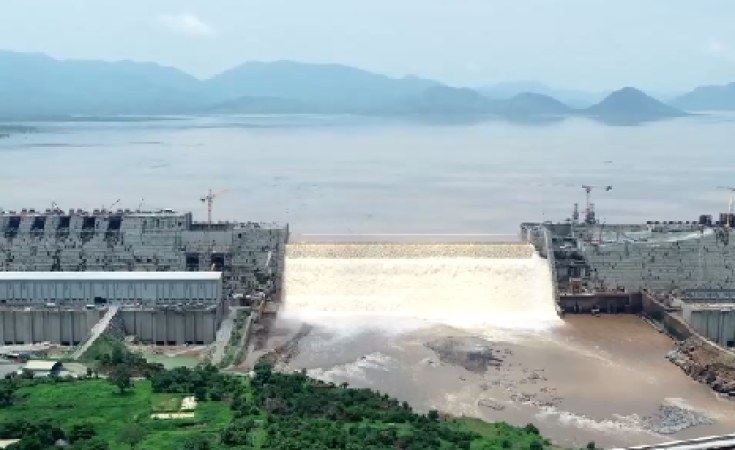Representatives of Egypt, Sudan and Ethiopia started a new round of talks in Cairo on Sunday 27/8/2023 to resolve the dispute over the Grand Ethiopian Renaissance Dam (GERD), according to a statement from the Egyptian Ministry of Irrigation and Water Resources.
The trilateral talks in Cairo are the first direct negotiations in over two years to resolve the decade-old dispute between Egypt and Sudan, on the one hand, and Ethiopia, on the other, over the dispute on the filling and operation GERD.
The last round of GERD talks between the three parties to reach an agreement, which was sponsored by the African Union (AU), collapsed in April 2021.
The new round of discussions on Sunday comes in lieu of an agreement reached by Egyptian President Abdel-Fattah El-Sisi and Ethiopian Prime Minister Abiy Ahmed during a meeting in Egypt in mid-July to restart GERD talks soon in order to reach a resolution to the dispute within four months.
During the talks on Sunday, Egypt's Minister of Irrigation and Water Sources and Irrigation Hani Sewilam reaffirmed Cairo's stance on the importance of achieving a legally binding agreement concerning the rules for filling and operating the GERD, according to the statement.
Sewilam also stressed the importance of considering all of the interests and concerns of all three countries as a way of moving forward.
The Egyptian minister reaffirmed Cairo's call on parties involved in the dispute to refrain from taking unilateral actions, underscoring that continued dam filling and operation in the absence of a legally binding deal constitutes a violation of the 2015 Declaration of Principles signed by all three parties, according to the statement.
He also reaffirmed Egypt's unwavering commitment to the success of the negotiation process, stressing confidence in the prospects of finding technical and legal solutions to all controversial issues that accommodate the interests of all three nations.
Over the course of the last 10 years, through multiple rounds of negotiations, both Egypt and Sudan have urged Ethiopia to commit to a legally binding agreement on the filling and operation of the GERD in a way that safeguards the water rights of downstream nations.
Cairo has repeatedly stressed its support for the construction of the GERD as part of Ethiopia's right to development while insisting that this should not be done in a way that harms Egypt's historic right to its fair share of the Nile water especially as the country faces serious water scarcity.
However, Ethiopia unilaterally initiated and completed the first three phases of the filling of the dam filling in the past three years despite the absence of an agreement with the Egyptian and Sudanese sides on sticking issues.
Addis Ababa also started generating electricity from the GERD in 2022.
Egypt maintains that these Ethiopian actions violate international law and the Presidential Statement of the UN Security Council issued in September 2021.
In July of this year, Ethiopian PM Ahmed disclosed that a fourth filling of the GERD would be extended until the end of August or early September 2023.
Egypt is facing a serious challenge to overcome an acute scarcity of water resources needed to support its 104-million-plus, and growing, population.
The country has a water deficit of 120 billion cubic metres, which amounts to 55 percent of its water needs.
Egypt's annual share of water has dropped to 500 cubic metres per person or half of the 1,000 cubic metres of water per person which is defined by the United Nations as the water scarcity threshold.
Ahram Online


